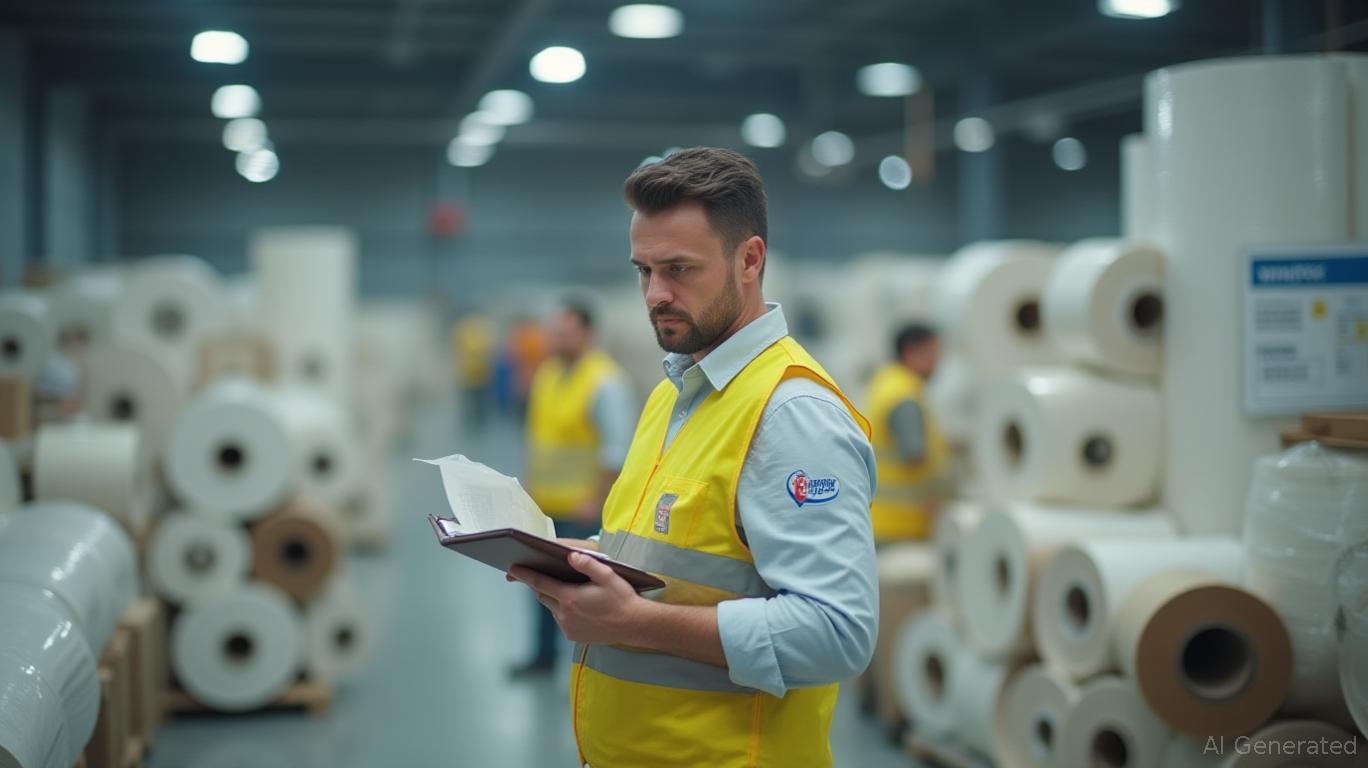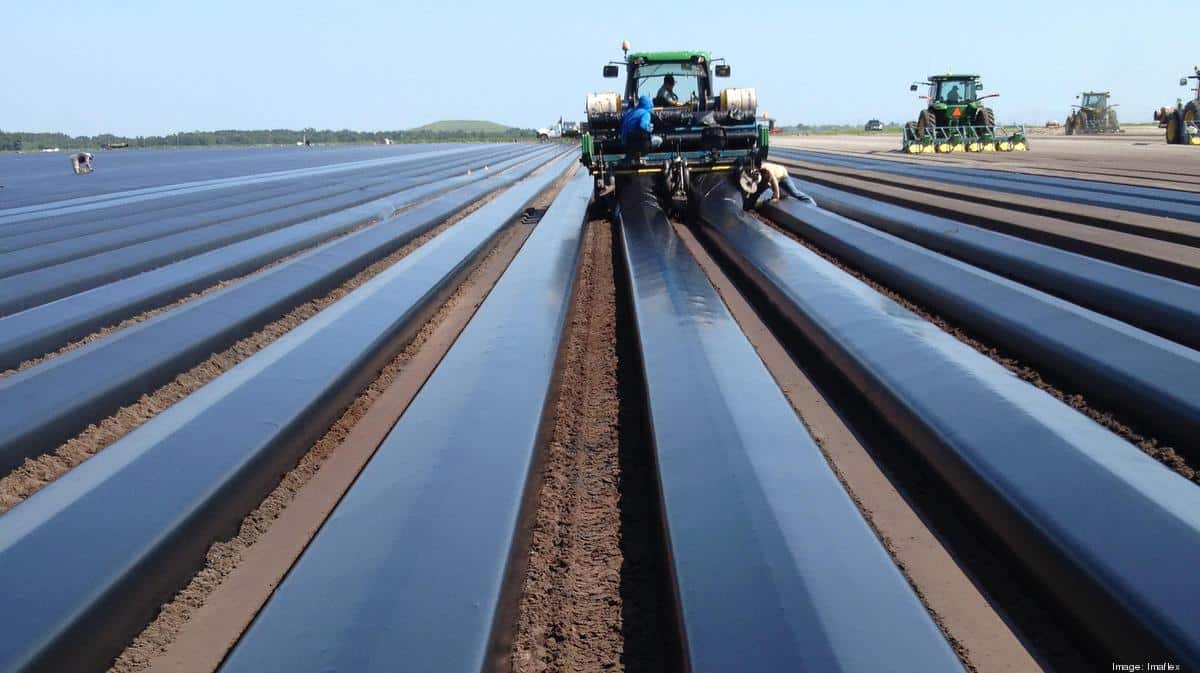Discovering Hidden Gems: Undervalued Packaging Machinery Stocks for 2025
Hey there, savvy investors! Are you on the hunt for some overlooked opportunities in the stock market? Well, you’ve landed in the right place. Today, we’re diving deep into the world of packaging machinery, a vital but often unsung hero of the global economy. We’re talking about the companies that build the machines that package everything from your favorite snacks to life-saving medicines. And guess what? Many of these companies might just be sitting on some serious untapped potential, making them prime candidates for the “undervalued” label.
You might be thinking, “Packaging machinery? Is that even exciting?” While it might not have the flash of AI or the allure of groundbreaking tech, the packaging industry is incredibly resilient and constantly innovating. Think about it: every single product you buy, almost without exception, needs packaging. And as global consumption continues to rise, so does the demand for efficient, reliable, and increasingly sustainable packaging solutions. This underlying demand is what makes the packaging machinery sector a fascinating area to explore for long-term investment.
Why Focus on Undervalued Stocks?

Before we jump into specific companies, let’s quickly chat about why “undervalued” is such a powerful word in investing. An undervalued stock is essentially a company whose current market price is lower than its intrinsic (or true) value. This often happens for a bunch of reasons – maybe the market’s just not paying enough attention, there’s some temporary bad news, or the company’s growth potential isn’t fully appreciated. Smart investors see these discrepancies as opportunities. By buying low and waiting for the market to catch up, you can potentially see some nice returns. It’s like finding a limited-edition collectible for a bargain price – you know its true worth is much higher.
The Packaging Machinery Landscape: A Quick Overview
The packaging machinery market is a big one, projected to exceed USD 50 billion in 2025 and growing steadily. It’s driven by a few key sectors:
Food Industry: This is the big daddy, accounting for over 40% of the market. From automated filling lines for beverages to sophisticated systems for fresh produce, food manufacturers are constantly investing in new machinery to keep up with demand and improve efficiency.

What’s driving innovation in all these areas? Automation, robotics, AI, and IoT (Internet of Things) are becoming increasingly crucial. Companies want machines that are more efficient, produce less waste, and can adapt quickly to changing product demands. And let’s not forget the big one: sustainability. Regulations and consumer preferences are pushing manufacturers towards eco-friendly packaging, which in turn fuels demand for machinery that can work with biodegradable materials, paperboard, and other sustainable options.
Unearthing Potential: Factors Making Packaging Machinery Stocks Undervalued
So, why might some packaging machinery stocks be flying under the radar? Here are a few reasons:
Perceived “Old Economy” Industry: Sometimes, investors gravitate towards “hot” tech stocks and overlook solid, foundational industries like manufacturing. Packaging machinery isn’t as flashy as software, but it’s incredibly essential.
Companies to Watch: Potential Undervalued Packaging Machinery Stocks
Please remember, this isn’t financial advice, and you should always do your own thorough research before making any investment decisions. The market is dynamic, and what’s undervalued today might not be tomorrow. However, based on current industry trends and reported analysis, here are a few companies that have been mentioned in discussions around undervalued packaging and packaging machinery, and why they might be worth a closer look. We’ll explore their potential and the aspects that make them interesting from an investment perspective.
Winpak (TSE:WPK)
Winpak is a Canadian company that’s a leader in flexible and rigid packaging solutions. While not exclusively a machinery manufacturer, their deep involvement in packaging materials means they’re intrinsically linked to the machinery that processes them. Recent reports suggest Winpak might be significantly undervalued. Despite solid earnings per share (EPS) growth over the past five years (outperforming the broader market), their stock price has remained relatively stagnant. This disconnect often signals an opportunity.
Strong EPS Growth: Consistent earnings growth indicates a healthy underlying business, yet the market hasn’t fully reflected this in the stock price. This suggests that the company is effectively managing its operations and generating profits, which is a fundamental indicator of value.
Analysts have projected a higher price target for Winpak, indicating a belief in its potential revaluation. The key here is patience, as the market may take time to recognize the intrinsic value.
NEXE Innovations (NEXE)
NEXE Innovations is a Canadian company focused on plant-based, compostable packaging technology. While their primary business is the materials themselves (like single-serve coffee pods), the development and production of these innovative materials inherently rely on specialized packaging machinery. A company at the forefront of sustainable packaging solutions often represents a forward-thinking investment.
Pioneering Sustainable Solutions: The global shift towards eco-friendly packaging is a massive trend. NEXE’s focus on fully compostable, plant-based alternatives positions them strongly within this movement. Companies addressing pressing environmental concerns often see long-term growth.
Investing in a company like NEXE is a bet on the future of sustainable packaging. While smaller companies inherently carry more risk, the potential upside from being a leader in a burgeoning market can be substantial.
Broader Trends Shaping the Packaging Machinery Market
Beyond individual companies, understanding the overarching trends in the packaging machinery market can help you spot other potential undervalued opportunities.
Automation and Industry 4.0: The drive for higher efficiency and reduced labor costs means more investment in automated packaging lines. Companies that specialize in robotics, AI-powered quality control, and integrated systems are well-positioned. If a machinery company is lagging in adopting or offering these advanced solutions, but has a strong fundamental business, it might be ripe for a turnaround or acquisition by a larger player.
Companies that are strategically adapting to these trends, perhaps through R&D, acquisitions, or partnerships, but whose stock price hasn’t yet caught up to their potential, could be excellent undervalued picks.
How to Research Potential Undervalued Stocks
So, you’re intrigued. How do you go about finding more of these hidden gems?
Financial Ratios: Look at traditional valuation metrics like Price-to-Earnings (P/E) ratio, Price-to-Book (P/B) ratio, and Enterprise Value to EBITDA (EV/EBITDA). Compare these to industry averages and historical trends for the company. A significantly lower ratio than its peers or its own historical average could indicate undervaluation.
Remember, patience is key. Undervalued stocks don’t always skyrocket overnight. It takes time for the market to recognize their true worth.
Conclusion
The packaging machinery sector, while perhaps not the most glamorous, is a robust and essential industry that offers compelling investment opportunities. The ongoing demand for packaged goods, coupled with significant trends in automation, sustainability, and e-commerce, provides a strong foundation for growth. By focusing on identifying companies like Winpak and NEXE Innovations that appear undervalued based on their fundamentals, growth prospects, and alignment with industry shifts, investors can potentially uncover hidden gems. As always, diligent research and a long-term perspective are your best allies in navigating the exciting world of stock market investing.
5 Unique FAQs After The Conclusion
What exactly constitutes “packaging machinery” for investment purposes?
Packaging machinery refers to the equipment used to perform various packaging operations, including filling, sealing, labeling, wrapping, conveying, and palletizing. This encompasses everything from small-scale manual machines to large, fully automated production lines. For investment purposes, it typically refers to companies that design, manufacture, sell, and service these types of industrial machines.
How does the focus on sustainability impact the valuation of packaging machinery stocks?
The increasing global focus on sustainability is a major catalyst for the packaging machinery industry. Companies that are innovating to produce machines compatible with eco-friendly materials (biodegradable, recyclable, reusable) or that improve packaging efficiency to reduce waste are likely to see higher demand and potentially stronger long-term growth. This increased relevance to a critical market trend can positively impact their intrinsic value and, eventually, their stock valuation, even if the market hasn’t fully priced it in yet.
Are smaller packaging machinery companies riskier investments than larger, more established ones?
Generally, smaller companies tend to carry more risk due to factors like less diversified revenue streams, potentially limited access to capital, and greater sensitivity to economic downturns or specific market shifts. However, they also often offer higher growth potential if successful, as they start from a smaller base. Larger, established companies typically offer more stability but might have slower growth rates. Diversifying your investments across different sizes of companies can help manage risk.
What role does automation play in the future growth of packaging machinery companies?
Automation is absolutely central to the future of packaging machinery. As labor costs rise and the demand for higher efficiency and precision increases, manufacturers are heavily investing in automated lines, robotics, and integrated systems. Companies that excel in developing and implementing advanced automation solutions, including those with AI and IoT capabilities for smart factories, are poised for significant growth and competitive advantage in the coming years.
How do global economic trends, like inflation or supply chain issues, affect the packaging machinery industry?
Like many manufacturing sectors, the packaging machinery industry can be impacted by global economic trends. Inflation can increase the cost of raw materials and labor, potentially squeezing profit margins. Supply chain issues can delay production and delivery of machines, affecting revenue and customer satisfaction. However, the fundamental demand for packaged goods often provides a degree of resilience, as businesses still need to package their products regardless of these headwinds. Companies with diversified supply chains and strong financial health are better positioned to weather these challenges.


